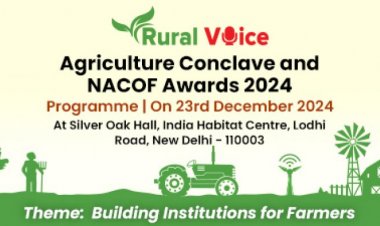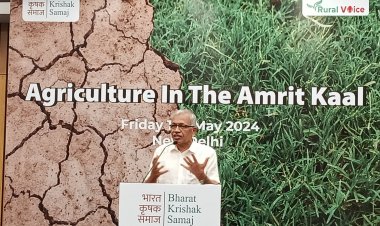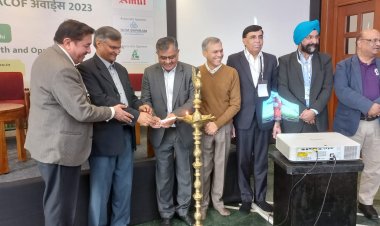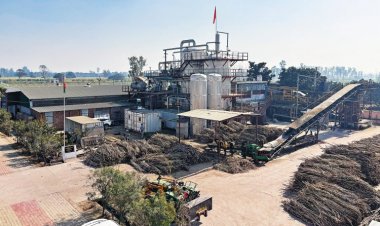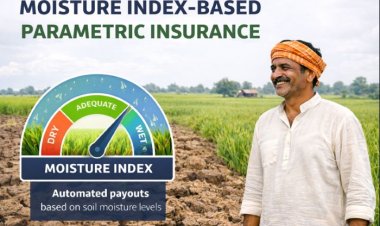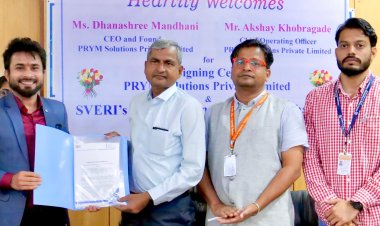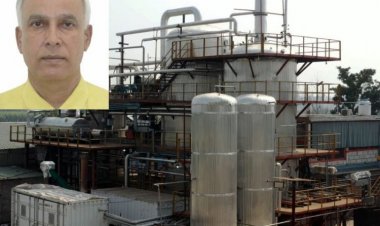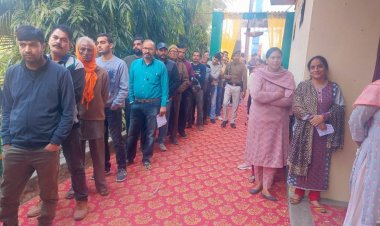Agenda for Rural India: Participants flag Climate Change, Unemployment and Drugs as major concerns at Jodhpur session
A brainstorming event was held in Jodhpur to address the question of ‘how the development agenda should for Rural India be framed’. The two-day meet 'Agenda for Rural India' was organised by Rural Voice, a digital media platform, Socratus, a not for profit organisation and South Asia Biotechnology Centre, a Jodhpur based agricultural research organisation on 1st and 2nd September.
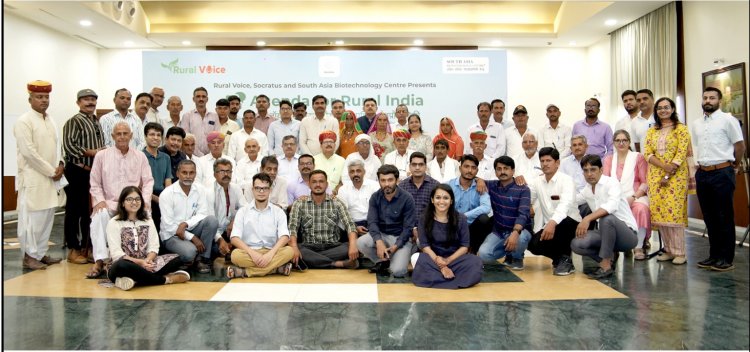
Jodhpur. A brainstorming event was held in Jodhpur to address the question of ‘how the development agenda should for Rural India be framed’. The two-day meet 'Agenda for Rural India' was organised by Rural Voice, a digital media platform, Socratus, a not for profit organisation and South Asia Biotechnology Centre, a Jodhpur based agricultural research organisation on 1st and 2nd September. This is the 3rd in the series of dialogues organised by Socratus and Rural Voice. The first two were held in Muzaffarnagar (UP) and Bhubaneswar (Odisha). The aim of the meet is to hear from rural citizens directly about the changes in rural India, challenges and opportunities for the government.
The event involved diverse rural stakeholders from over 12 districts of Rajasthan, including farmers, FPOs, Civil Society Organisations, small entrepreneurs, rural journalists, artisans, teachers, and migrants.
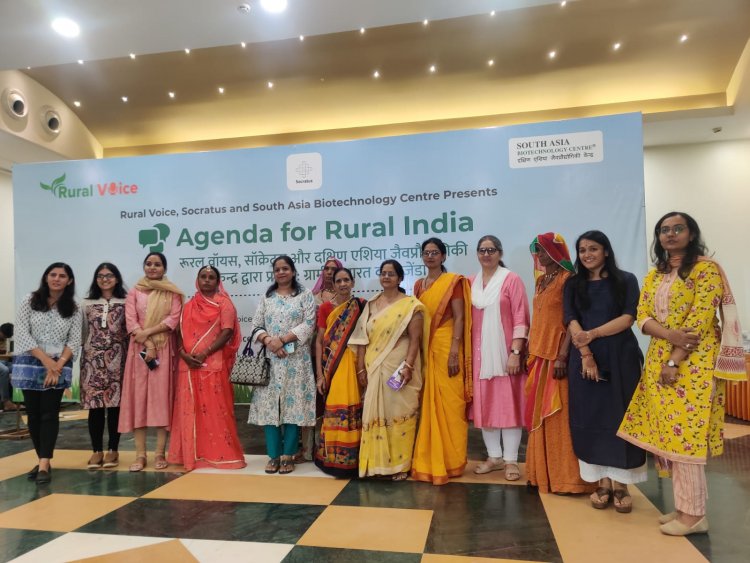
Issues of life and livelihood of rural community were discussed at Jodhpur brainstorming session. In the first session of the brainstorming, concerns and issues affecting life and livelihood in rural area were raised by the participants. Main highlights of the issues raised by the participants are like Climate change and its impact on farmers.
- Overuse of chemicals in fields, which is linked to serious diseases such as cancer. There is a need to promote natural farming.
- Lack of water facilities for drinking and irrigation. Hard water quality and low groundwater levels.
- Poor health facilities - lack of PHCs and medical staff
- No awareness or lack of information about government schemes, they hardly reach those who actually need them
- Unemployment in rural areas, migration of youth to cities
- Lack of marketing opportunities for agricultural produce
- Poor quality of health and education in rural areas
- Corruption in local governance at Panchayat level
- Forest rights for Adivasi communities
- Lack of insurance coverage for farmers
- Governance issues in Gram Panchayat functioning and irregular or on meeting of Gram Sabha.
- Drug addiction among youths is also a big issue in rural areas.
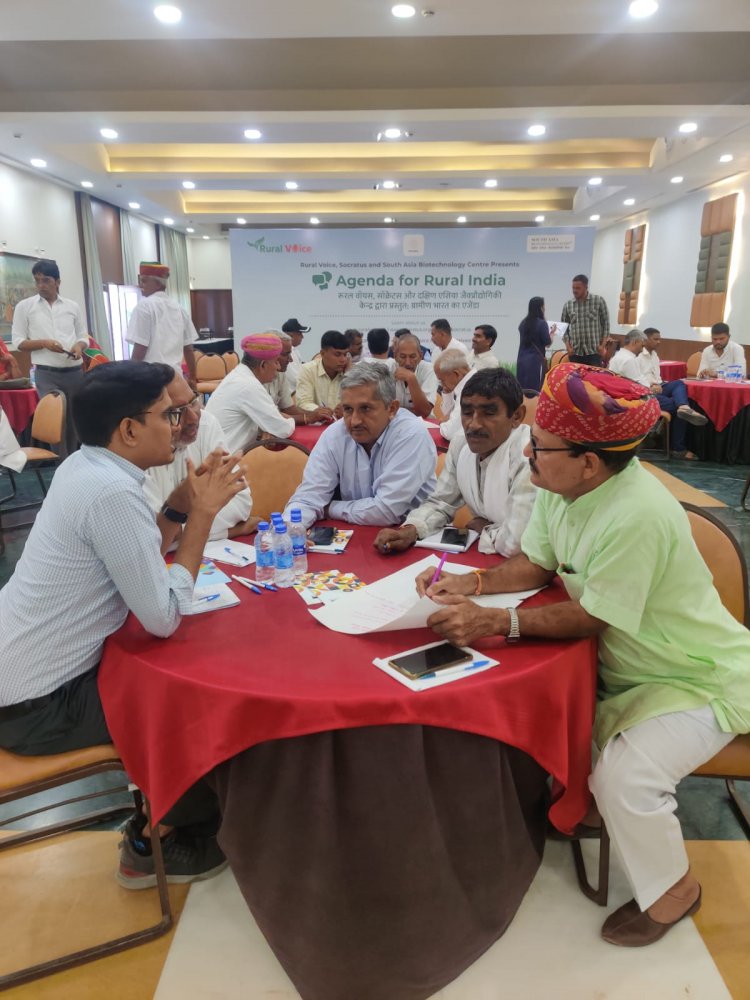
Aspirations and solutions to resolve the above mentioned problems were discussed and deliberated upon in the second part of the brainstorming.
Participants suggested policy and systemic changes to have a better village life and economic development of the villages. One interesting observation is that rural people should not be dependent on freebies and hand-outs and should be given the facilities to become self-sufficient.
- To achieve the desired results participants focused on Climate change and said that we need to promote natural farming to reduce the impact of climate change on farmers.
- Overuse of chemicals in agriculture should be discouraged and pollution of air, water and land should be reduced.
- Water for drinking and irrigation should be provided to all.
- Create employment opportunities in villages for youth so that they don’t have to migrate
- Education - quality of education should be improved, women empowerment should be taught in schools.
- Drug addiction among youth should be reduced.
- We need to promote family planning and empower women to make decisions regarding reproductive health.
- Small businesses at the village level should be promoted and manufacturing should be encouraged.
- Government schemes should reach the right people, who need them.
- Women empowerment - women’s safety and empowerment should be prioritized.
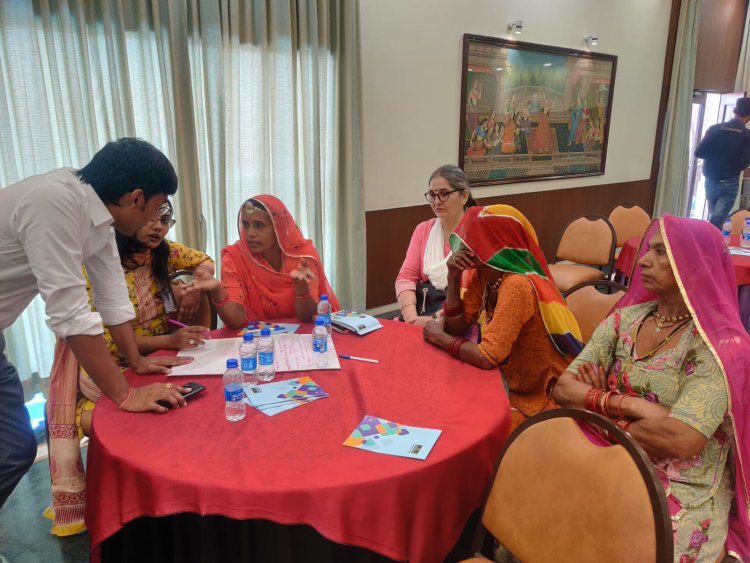
These events aim to address the urban-rural divide and enable rural stakeholders to voice their opinions, promoting sustainability and inclusivity in rural development. Through dialogue and collaboration, there is a hope to develop a comprehensive rural agenda that addresses the needs of these communities. The aim is to share the compiled insights from the six convening’s across India with policymakers and experts at the national level.



 Join the RuralVoice whatsapp group
Join the RuralVoice whatsapp group

















